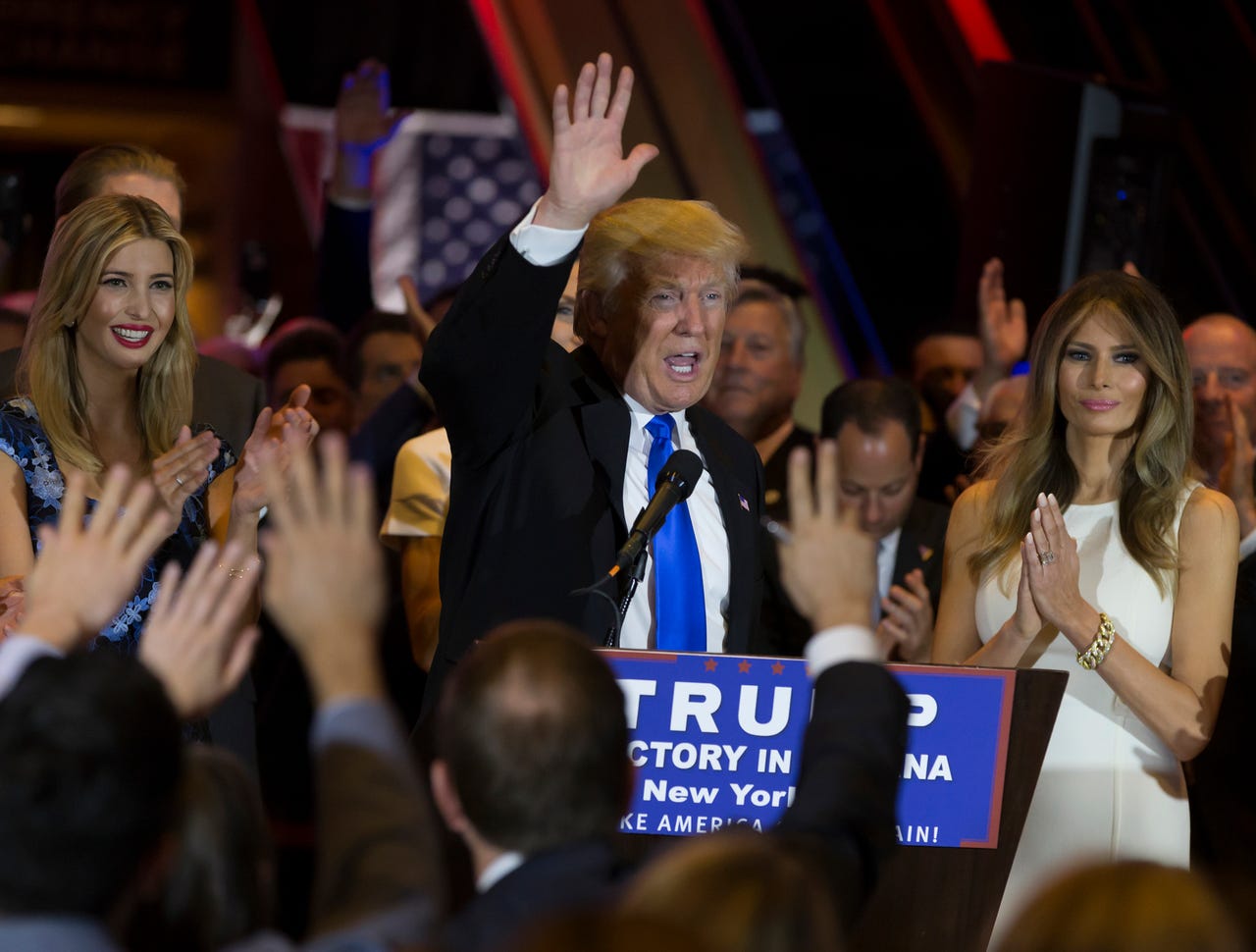How savvy marketing put Trump over the top


The shock waves from Donald Trump's victory over Hillary Clinton in this year's historic presidential election won't fade for quite a while, and Trump's presidency has yet to even begin. In the meantime, many are taking time to look back over the campaign to try and unpack exactly how Trump pulled off his massive win.
NATIONAL SECURITY
At this week's Inbound 2016 conference in Boston, marketing book author and HubSpot marketer-in-residence David Meerman Scott said it came down to which candidate employed the best marketing and inbound sales techniques.
Over the past 18 months, self-professed political junkie Scott attended rallies for Bernie Sanders, John Kasich, Trump, Clinton others, where he not only got an up-close look at the campaign's operations, but was able to speak with prospective voters.
There was one uniform failing among them, Scott said during a presentation at Inbound: "I was waiting for one of these candidates to integrate me as a digital person with their physical event." Again and again, he would attend an event only to find there were no dedicated hashtags for it, or ready-made social content from the campaign to share. Nor would there be any post-event follow-ups, even when he had pre-registered for the event, meaning the campaign had his contact information without having to capture it.
See also: What are Trump's technology policy plans? | How an Indian firm predicted a Trump victory when every American pollster got it wrong | Wildly inaccurate election forecasts highlight Big Data challenges
Then at one Clinton event, attendees were urged to send a text message to the campaign. What happened next? A seemingly endless series of requests for $75 donations, save for one message written in Clinton's handwriting. "This is what the campaigns were doing and it's what most businesses do: Promotion."
Sharing and engaging with voters--which in an election contest are of course customers--should be the bulk of a successful campaign's marketing efforts, with promotion a comparatively small piece, Scott said.
For example, Clinton had massive success with something many of us do on any given day: Taking selfies. She "became a selfie ninja," Scott quipped. He played footage of Clinton methodically grabbing a voter's phone and snapping a selfie with them, over and over. "Here's the thing: We all share selfies," Scott said. "The idea here is she figured out a simple way to get people to share content."
As for Trump? He is a "real-time marketing genius," Scott said.
Trump relied on two strategies: Making pointed and often controversial statements on his Twitter account and holding an endless series of mega-rallies, both of which drove the mainstream media to write and broadcast, Scott said. Trump was also sure to have a fresh sound bite at every rally, proverbial chum for the media sharks. One estimate has placed Trump's free media benefit as worth $5 billion over the course of the campaign.
Trump also exhibited savvy marketing jiu-jitsu repeatedly during the campaign, Scott said. A prime example is when the now-defunct website Gawker published Trump's cell phone number and urged readers to give him a call. Trump's response? To change his voice mail message to a short campaign pitch, and ask voters to dial in and listen. Other candidates may have responded to Gawker's move with outrage and indignation, but Trump turned it into an advantage, Scott said.
Meanwhile, Clinton's use of social media and voter engagement improved over the course of the campaign, but overall focused on a market research approach, Scott said: "What did the polling data tell me? What can I learn from what the pundits are saying?"
Clinton's campaign had a vaunted ground game, with massive amounts of volunteers armed with plenty of data about individual voters, Scott noted. "But if you're going after those same buyers, you lose sight of what else is out there," he said. "Who's the buyer you don't know? That's what Donald Trump was able to capture."
Trump's social media savvy also captured his own essence, says Constellation Research VP and principal analyst Cindy Zhou. "Authenticity is key in social media. Regardless if you agreed or disagreed with him on social media, he comes across as authentic as he does his own tweets. He stays focused on message."
24/7 Access to Constellation InsightsSubscribe today for unrestricted access to expert analyst views on breaking news.